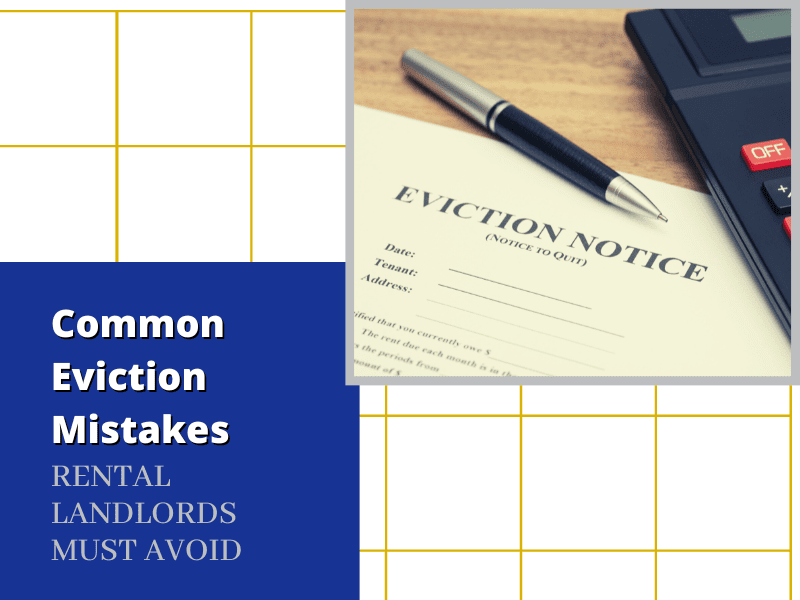
Evictions were always a bit of a headache, but since the eviction moratorium and the subsequent programs that served to protect renters and owners during the worst of the pandemic, removing a tenant from your property is more complicated than ever. There’s a lot of room for error, and making a mistake is only going to cost you more time and money.
We believe that eviction should always be a last resort. Keeping a tenant in place is better for you, for them, and for your property. It’s a good idea to try and work out a payment plan or some arrangement that keeps your tenant in the property. If that’s impossible, however, and you can’t seem to get your tenants to communicate or work with you, sometimes eviction is the only option you have left.
Here are some of the most common eviction mistakes we see landlords make, and how to avoid them.
Changing Locks or Turning Off Utilities
It’s easy to become frustrated when rent isn’t paid and you have a tenant who is essentially living in your home for free. You need that rental income, and you have every right to hold your tenants accountable to the lease agreement and their obligations.
However, you cannot let your anger get the best of you. There’s a legal process that must be followed. You cannot change the locks on your property. You cannot cut off the water or the electricity. You cannot show up and let yourself into the property or engage in a screaming match.
These things will get you in trouble and only make the eviction process worse for you.
Avoid the urge to take drastic (and illegal) actions. When your tenant is not paying rent, follow the eviction process. If your emotions are likely to take hold, talk to a property manager or an eviction attorney who can handle all tenant communications and the court process for you.
Avoiding the Washington State Eviction Process
 When you follow the process and you have all of your documents in order, the eviction process does not need to take more than a month. Now, with a backlog of cases since the moratorium was lifted, it might take a bit longer, but the courts are working efficiently to hear what they can.
When you follow the process and you have all of your documents in order, the eviction process does not need to take more than a month. Now, with a backlog of cases since the moratorium was lifted, it might take a bit longer, but the courts are working efficiently to hear what they can.
Before you even go to court, you need to serve your tenants the proper notice. This is a 14-Day Notice to Pay or Vacate. The tenants will have 14 days to pay the rent in full or leave the property. You can negotiate a payment plan at this stage, but you’re under no obligation to. However, if the tenant does catch up and pay the rent in full within those 14 days, you cannot continue with an eviction. Do not make the mistake of thinking you’re still going to remove your tenant from the property. The eviction process stops when rent is paid during this notice period.
If the 14 days pass and there is still no rent paid, you can file for an unlawful detainer in court. Your tenants will receive an eviction summons and complaint, and they’ll have 7 days to answer it. Depending on how the tenants respond, or if they respond, you’ll either get a court date or a judgment.
We’ve found that the best way to avoid eviction mistakes is by avoiding eviction. Make sure your tenant screening process is thorough and consistent, and develop a good working relationship with your residents. It reduces the chance of eviction.
Worried about making a mistake? Contact us at Real Estate Gladiators when you feel like you have to evict. We work with landlords in Monroe, Issaquah, Bellevue, Everett, Lake Stevens, Kirkland and other cities in and around King and Snohomish counties in Washington State.
